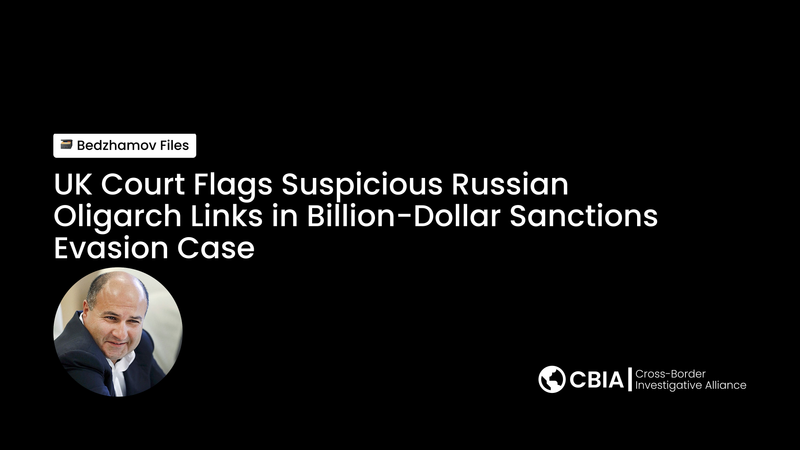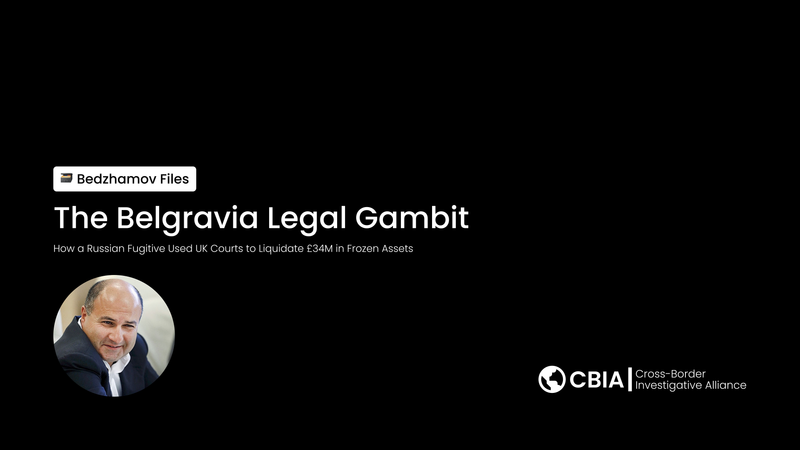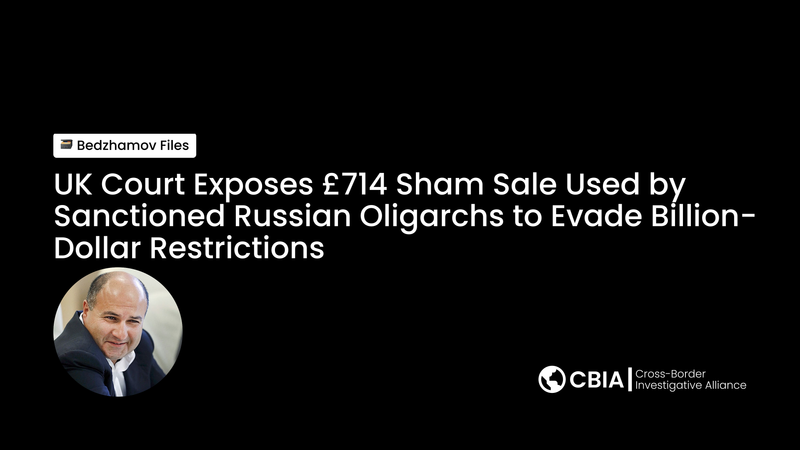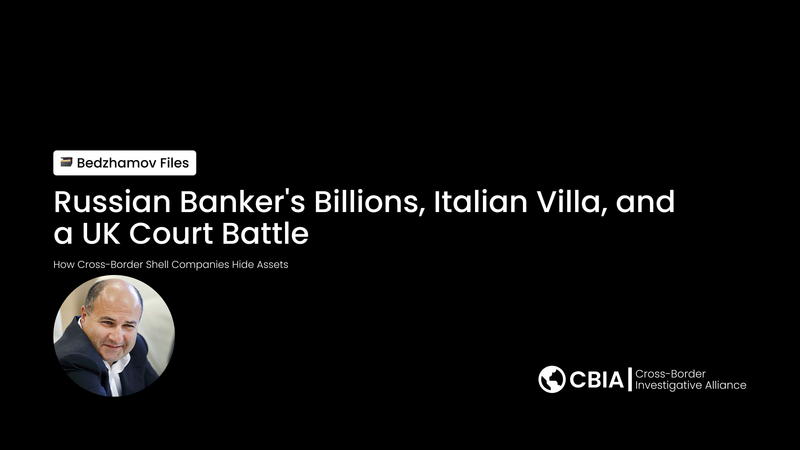The Kremlin's Protected Fugitive: How UK Courts Fund a Russian Oligarch's Private Army While His Assets Remain Frozen
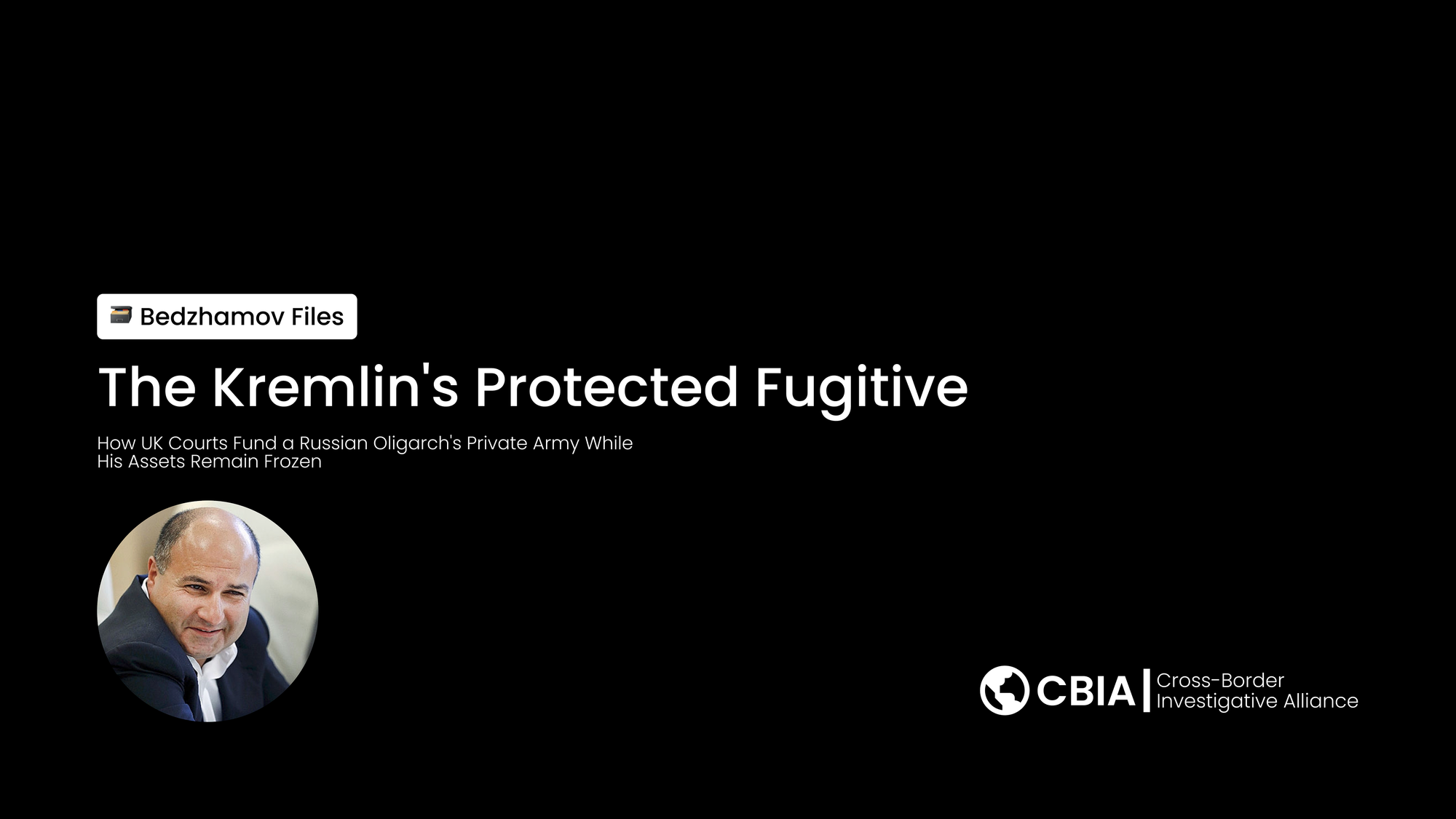
In a paradox that epitomizes the complex relationship between international law, financial crime, and geopolitical tensions, a Russian oligarch wanted by Moscow for one of the country's largest banking frauds lives under private armed protection in London—funded by the very British courts that have frozen his billions in assets.
Georgy Bedzhamov, 52, the former owner of Vneshprombank, has been granted permission by UK courts to spend approximately £45,000 per month on private security services across London and Monaco, despite facing a £1.34 billion asset freeze order. The arrangement stems from genuine fears that Russian state actors might target him for assassination, creating an extraordinary situation where British justice simultaneously protects and pursues a man Moscow considers a fugitive.
The Vneshprombank Collapse
Bedzhamov's troubles began in 2015 when Russia's Central Bank revoked Vneshprombank's banking license after discovering a shortfall of 187.4 billion rubles ($2.3 billion) in its balance sheet [1]. According to Russian court documents, Bedzhamov and his sister Larisa Markus, who co-owned the bank, developed a systematic scheme to defraud depositors between 2011 and 2015.
The fraud's victims included Russian government ministries, state-owned corporations, VIP clients including family members of government officials, and the Russian Orthodox Church—entities that had entrusted the bank with tens of billions of rubles [1]. Markus was arrested in December 2015, later pleading guilty to embezzling $1.8 billion and receiving a nine-year prison sentence.
Bedzhamov fled Russia just before his sister's arrest, initially traveling to Monaco where he was detained on a Russian extradition request. However, Monegasque authorities refused the extradition, and Bedzhamov subsequently made his way to London, where he claimed asylum citing fears for his safety.
A Life Under Protection
The scale of Bedzhamov's security concerns became apparent in 2019 when his legal team successfully argued before the UK Court of Appeal that his monthly allowance should be increased from £80,000 to over £161,000 to cover living expenses, including substantial security costs [2]. Court documents reveal that private security in London costs approximately £24,000 per month, with an additional €29,000 monthly for protection in Monaco.
The security arrangements were justified by documented threats to Bedzhamov's life. In 2016, Monegasque police informed him of a death threat, and in 2017, he was threatened with kidnapping in the UK [3]. Following the high-profile poisoning of Sergei Skripal and his daughter in Salisbury, British police interviewed Bedzhamov in April 2019—not as a suspect, but apparently as part of broader security assessments of Russians living in the UK who might be at risk.
Lord Justice Males, ruling on Bedzhamov's appeal to increase his spending allowance, noted the "well-publicised incident concerning Sergei Skripal" and acknowledged the legitimacy of security concerns that could lead to "a Novichok-style attack" [2].
The Offshore Money Trail
Investigations by the Organized Crime and Corruption Reporting Project (OCCRP), using documents from the Pandora Papers leak, have revealed the sophisticated financial infrastructure Bedzhamov employed to move and hide assets during the period of the alleged fraud [1].
The scheme involved a web of shell companies across multiple jurisdictions. For example, a Cypriot company called Felarco Management Limited received over $50 million in loans from UK limited liability partnerships between 2012 and 2013, then immediately transferred identical amounts to Bedzhamov as "loans" with vague repayment terms and misspelled names.
Tradeberg United LLP loaned Felarco Management $20 million in December 2012, which was forwarded to Bedzhamov ten days later. Similar transactions occurred with Silverrow Invest LLP, which provided $10 million and nearly 17 million euros in separate transactions that were quickly passed to Bedzhamov [1].
Lakshmi Kumar, Policy Director at Global Financial Integrity, told OCCRP that such loan arrangements are designed to "make money move between multiple jurisdictions, making it harder to connect dots and establish a forensic trail." The ultimate ownership of these entities remains hidden behind corporate secrecy rules in tax havens including the Marshall Islands, Belize, and British Virgin Islands.
Legal Limbo and Asset Recovery
The pursuit of Bedzhamov's assets has created a complex international legal battle. While his assets are frozen in the UK, Russian authorities continue seeking to seize his properties, including his elite London mansion in Belgrave Square, purchased for £15.2 million.
In a particularly byzantine twist, Bedzhamov has claimed that much of his wealth is actually owed to creditors, including a British Virgin Islands company called Clement Glory Limited, which allegedly purchased his debts for $8 million [1]. Russian prosecutors have dismissed this as "a fictitious charge" designed to protect assets from recovery.
Meanwhile, the legal proceedings in London have been repeatedly delayed. In September 2021, a British High Court judge indefinitely postponed the fraud case against Bedzhamov due to uncertainty over the Russian charges and complications around asset recovery [1].
The Security Apparatus
While court documents confirm the authorization for security spending, the specific firms providing protection remain undisclosed for operational security reasons. The arrangement covers both his London residence and the Monaco apartment where his partner and children live, requiring coordination between security teams across two jurisdictions.
The monthly security budget of approximately £45,000 represents a substantial ongoing expense that raises questions about the level of threat assessment and the specific protective measures being employed. Such costs typically indicate close protection officers, secure transportation, residential security systems, and potentially counter-surveillance capabilities.
The Broader Implications
Bedzhamov's case highlights the increasing complexity of international financial crime and its intersection with geopolitical tensions. His situation exemplifies how individuals caught between rival legal systems can exploit jurisdictional gaps while legitimate security concerns create ethical dilemmas for host countries.
The ongoing asset recovery efforts by Russia's Deposit Insurance Agency, which continues to search for hidden assets to cover Vneshprombank's obligations now totaling 218 billion rubles (around $3 billion), demonstrate the persistent challenges in cross-border financial crime enforcement [1].
As Bedzhamov continues to live in London under court-approved protection, his case serves as a stark reminder of how the global financial system's opacity can shield both legitimate refugees and alleged criminals, while taxpayer-funded court systems grapple with unprecedented security challenges in an era of state-sponsored assassination threats.
The question remains: in an age where financial crime increasingly intersects with international espionage and state violence, how should democratic legal systems balance the protection of individuals from credible threats against the pursuit of justice for alleged economic crimes? Bedzhamov's protected life in London, funded by British courts while his billions remain frozen, offers no easy answers.
Sources:
[1] Organized Crime and Corruption Reporting Project (OCCRP), "Fugitive Russian Banker Used Cypriot Law Firm to Hide Assets, Move Money," October 7, 2021
[2] Evening Standard, "Wanted oligarch can spend £45k a month on his private security," January 13, 2020
[3] High Court Judgment, Vneshprombank LLC v Bedzhamov & ors, July 19, 2019


